We’re so excited to have local artist Cornelio Campos working on our community mural at our Durham clinic. Check out a story The Durham Herald Sun wrote about our mural and the Lakewood community here: http://bit.ly/2IRuamj
A new mural is a snapshot of Durham’s quickly changing Lakewood neighborhood
Art has a way of wiggling into the tight spaces and opening things up.
The first brushstrokes were made Saturday on a new community mural in Durham’s Lakewood neighborhood, a corner of the city heavy with new housing developments and significant home renovations.
On the wall in the middle of a strip mall are the moon and stars, open hands, butterflies and trees, bookended by the sun and Statue of Liberty. Painted in both Spanish and English is the message “Welcome home.”
The mural covers the exterior wall of El Futuro, a mental health clinic largely serving local Latino and immigrant communities, and updates an original mural painted in 1998 by local artist and teacher Sandee Washington. That original mural was part of Durham’s Busy Street, a playground for kids depicting a miniature town, and featured a fantastical scene of a bride flying a horse off of a cliff on her wedding day and a wall-sized poem.
Washington was involved in the updating of the mural, blending pieces of her work with the new design.
“The neighborhood has changed, the mural has to change with it,” Washington said.
The new mural was designed by Mexican-American artist Cornelio Campos, who has lived in Durham since the early 1990s and recently completed a new Diego Rivera-inspired mural on East Chapel Hill Street in downtown Durham for the North Carolina Museum of Art. The Lakewood community had a say in the mural’s design, Campos said, through input meetings.
“The inspiration came from the community,” Campos said, “to feel welcome in this space, something bright and colorful that feels good.”
The mural is funded by the Z. Smith Reynolds Foundation’s Inclusive Public Art grant. Campos said he is hopeful that art remains a priority in Durham.
“Art is always the first thing to go,” Campos said. “To me, as an artist, art is the sign of a healthy society. Durham is a healthy city.”
The El Futuro clinic opened in downtown Durham 15 years ago, founder and psychiatrist Luke Smith said, and moved to Lakewood last year, where an office of 45 serves hundreds of clients.
Caught in the vivid light of an October afternoon, the corridor seemed to sparkle where painters put their brushes on the wall. The shopping center itself is far from shiny and new, and Smith said the strip of grass between the buildings had become a small field of discarded beer bottles and trash as the original mural faded in the sun. The space is a heavily used path connecting different parts of Lakewood and a route taken to Food Lion and other stores.
Smith said they wanted this highly visible space to continue feeling welcome, but also something to be proud of. Saturday’s kickoff party included coolers of 300 homemade tamales and a large tres leches cake.
“We wanted to create something that would viscerally connect with the community,” Smith said of the mural.
El Futuro’s clients by and large are immigrants from Mexico, Honduras and other Latin American countries, Smith said. Moving to Lakewood meant moving into one of Durham’s higher concentrations of Latino residents, Smith said, but as the city attracts more and more newcomers, that neighborhood is quickly changing and gentrifying. Smith said Lakewood is currently ethnically and economically diverse, but that projects like the mural could be new points of intersection.
“The upstream problem is that people are disconnected from each other,” Smith said. “Some work two or three jobs, they come home, they crash, they go back to work. There’s little time to have that experience of connecting with neighbors. Hopefully as people come to do their work together there’s a connection.”
The Lakewood Shopping Center is split in two, and the new mural in between sits on the very edge of Durham’s development pressure. El Futuro’s landlord is the Scrap Exchange, the Durham nonprofit thrift store and craft space, which bought 10 acres of the shopping center in 2016 for $2.5 million. The next parcel over, currently occupied by Food Lion and other tenants, was purchased in foreclosure last year by Greenville developer BrodyCo for $5.25 million. It appears larger development will come at some point, but so far, no plans have been disclosed.
As the mural came together Saturday, some brushstrokes strayed over the lines, some paint ended up on foreheads and fingers, many strokes were made with the care and concentration that they might be on the wall for decades.
“It’s wonderful that everyone is painting the mural together,” Scrap Exchange Executive Director Laura Nicholson said. “It brings so much more life to the mural. If you could sum up Lakewood on a wall, there it is.”

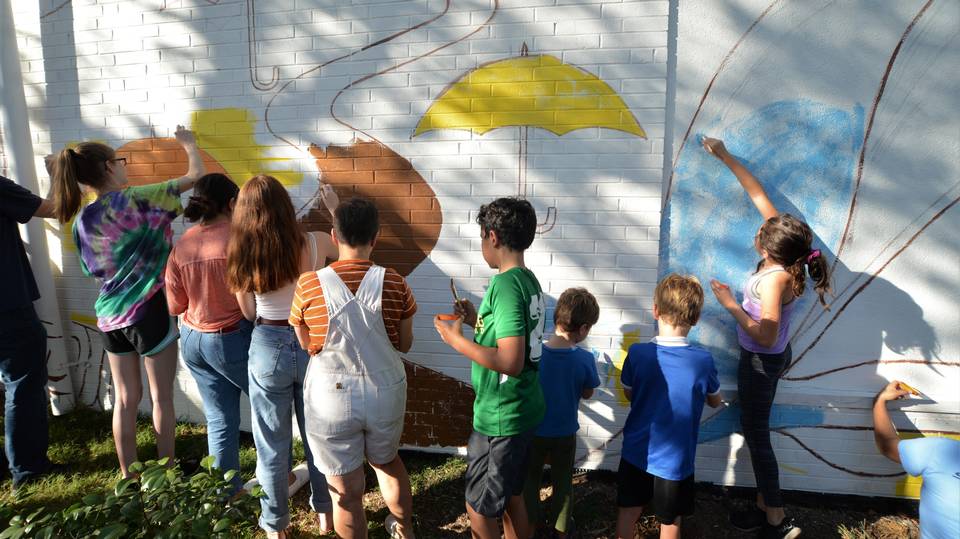
 Alvely Alcántara, LCSW
Alvely Alcántara, LCSW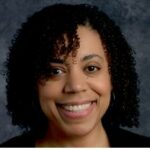 Rossy C. Garcia, MEd
Rossy C. Garcia, MEd 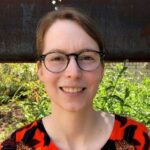 Katy Sims, MD
Katy Sims, MD 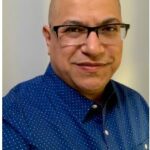 Everardo Aviles, LCSW, LCAS (Eve)
Everardo Aviles, LCSW, LCAS (Eve)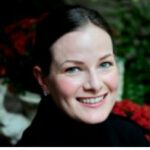 As a medical anthropologist and social work researcher, Dr. Gulbas’ research embodies interdisciplinarity through the integration of applied theories of health and human development with qualitative and ethnographic methodologies. Her work seeks to understand how people—children, families, and providers—navigate complex sociocultural landscapes in the pursuit of mental health. Most of her work, to date, focuses attention on developing more robust interpretations of suicide risk. With funding from the National Institutes of Mental Health, this body of research has contributed to advancements in theoretical and empirical knowledge of the broader contexts within which youth suicide risk is situated.
As a medical anthropologist and social work researcher, Dr. Gulbas’ research embodies interdisciplinarity through the integration of applied theories of health and human development with qualitative and ethnographic methodologies. Her work seeks to understand how people—children, families, and providers—navigate complex sociocultural landscapes in the pursuit of mental health. Most of her work, to date, focuses attention on developing more robust interpretations of suicide risk. With funding from the National Institutes of Mental Health, this body of research has contributed to advancements in theoretical and empirical knowledge of the broader contexts within which youth suicide risk is situated.  R. Gabriela Barajas-Gonzalez is a developmental psychologist and an assistant professor of Population Health at NYU Grossman School of Medicine. Dr. Barajas-Gonzalez is the principal investigator of a study that examines the impact of immigration-related threat and stress on school communities. She earned a PhD in developmental psychology from Columbia University and hold a BA in human biology from Stanford University. Dr. Barajas-Gonzalez is the daughter of Mexican immigrants and a first gen college student.
R. Gabriela Barajas-Gonzalez is a developmental psychologist and an assistant professor of Population Health at NYU Grossman School of Medicine. Dr. Barajas-Gonzalez is the principal investigator of a study that examines the impact of immigration-related threat and stress on school communities. She earned a PhD in developmental psychology from Columbia University and hold a BA in human biology from Stanford University. Dr. Barajas-Gonzalez is the daughter of Mexican immigrants and a first gen college student.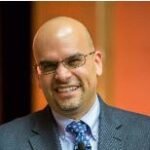 Dr. Parra-Cardona is an Associate Professor in the Steve Hicks School of Social Work (SHSSW) at the University of Texas at Austin. At the SHSSW, he serves as Coordinator for Mexico and Latin American initiatives. He also serves as Area Director for Research at the UT Austin Latino Research Institute. Dr. Parra-Cardona’s program of research is focused on the cultural adaptation of evidence-based parenting interventions for low-income Latinx populations in the US and Latin America.
Dr. Parra-Cardona is an Associate Professor in the Steve Hicks School of Social Work (SHSSW) at the University of Texas at Austin. At the SHSSW, he serves as Coordinator for Mexico and Latin American initiatives. He also serves as Area Director for Research at the UT Austin Latino Research Institute. Dr. Parra-Cardona’s program of research is focused on the cultural adaptation of evidence-based parenting interventions for low-income Latinx populations in the US and Latin America.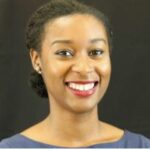 Bianka Reese, PhD, MSPH is a research scientist and program evaluator specializing in adolescent and young adult sexual and reproductive health. Her previous research in the experiences of Latinx LGBTQ+ youth stems from her work as the Research and Evaluation Manager at SHIFT NC (Sexual Initiatives For Teens), where she led largescale evaluations of multilevel, community-based sexual health promotion initiatives and research projects aimed at elevating the voices of diverse youth in North Carolina. Dr. Reese is currently the Senior Research Strategist at Creative Research Solutions, LLC, an award-winning national evaluation, research, and assessment firm.
Bianka Reese, PhD, MSPH is a research scientist and program evaluator specializing in adolescent and young adult sexual and reproductive health. Her previous research in the experiences of Latinx LGBTQ+ youth stems from her work as the Research and Evaluation Manager at SHIFT NC (Sexual Initiatives For Teens), where she led largescale evaluations of multilevel, community-based sexual health promotion initiatives and research projects aimed at elevating the voices of diverse youth in North Carolina. Dr. Reese is currently the Senior Research Strategist at Creative Research Solutions, LLC, an award-winning national evaluation, research, and assessment firm.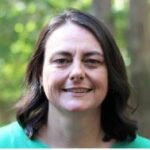 Tania Connaughton-Espino, MPH is an independent researcher focused on adolescent and young adult sexual and reproductive health. Her interest in the experiences of Latinx LGBTQ+ youth stems from her previous work with SHIFT NC (Sexual Initiatives For Teens), where she led the training and evaluation department, conducted capacity-building workshops for youth serving professionals including on the topic of how to be more affirming of LGBTQ youth, and from her extensive experience working with the Latinx population in NC.
Tania Connaughton-Espino, MPH is an independent researcher focused on adolescent and young adult sexual and reproductive health. Her interest in the experiences of Latinx LGBTQ+ youth stems from her previous work with SHIFT NC (Sexual Initiatives For Teens), where she led the training and evaluation department, conducted capacity-building workshops for youth serving professionals including on the topic of how to be more affirming of LGBTQ youth, and from her extensive experience working with the Latinx population in NC.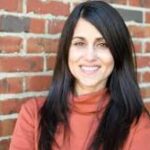 Maru Gonzalez, EdD is an Assistant Professor and Youth Development Specialist in the Department of Agricultural and Human Sciences at North Carolina State University. Her areas of inquiry include youth development with a focus on activism, social justice, and the experiences of LGBTQ+ young people across familial, school, and community contexts.
Maru Gonzalez, EdD is an Assistant Professor and Youth Development Specialist in the Department of Agricultural and Human Sciences at North Carolina State University. Her areas of inquiry include youth development with a focus on activism, social justice, and the experiences of LGBTQ+ young people across familial, school, and community contexts.  Nayeli Y. Chavez-Dueñas, PhD
Nayeli Y. Chavez-Dueñas, PhD Hector Y. Adames, PsyD
Hector Y. Adames, PsyD